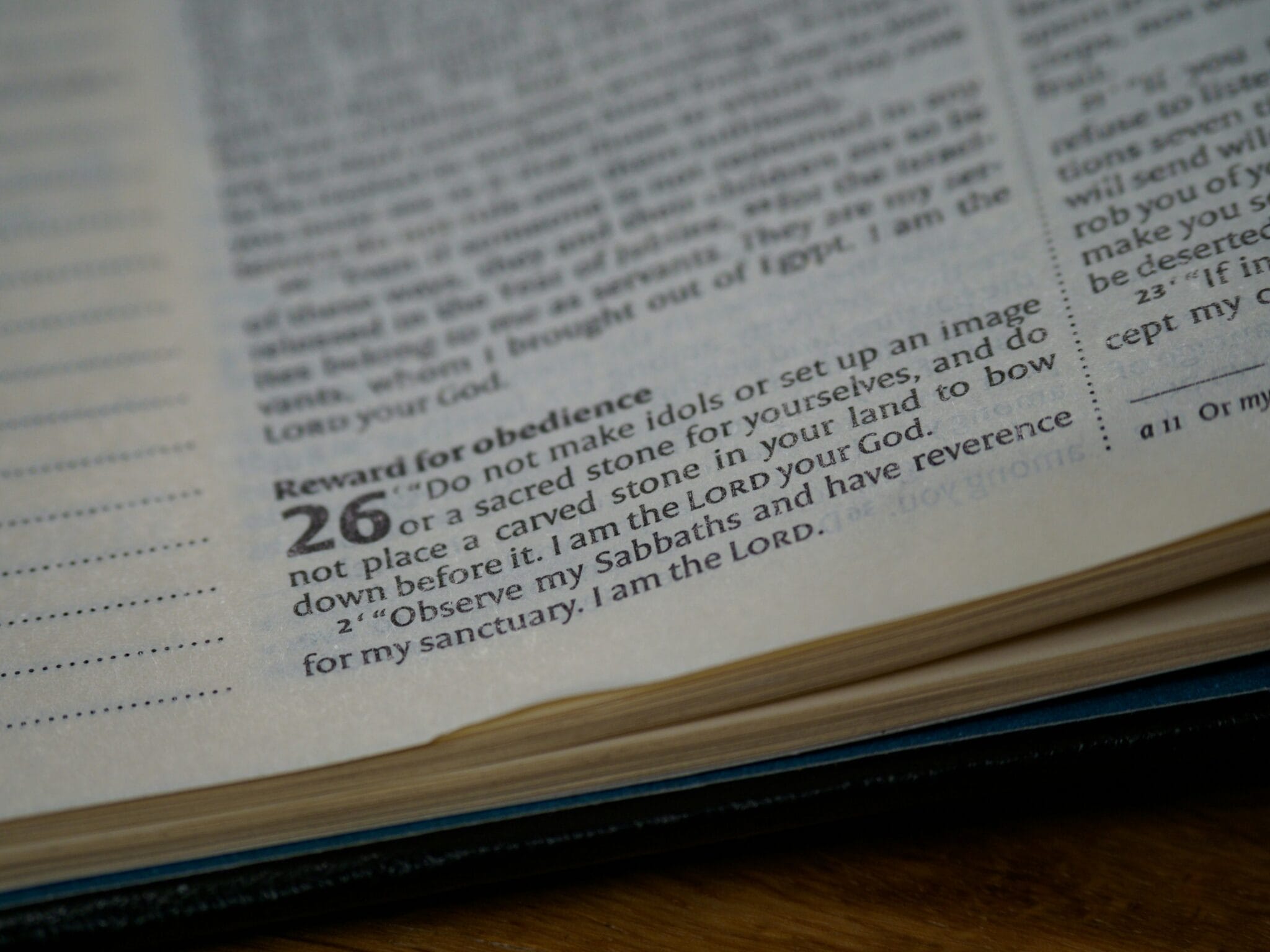How Obedience in Life Can Impact The Power of Love

The Concept of Obedience: A Dual Perspective
Obedience, at its core, embodies a compliance or submission to a set of rules, commands, or authority. This concept can be viewed through various lenses, primarily religious and secular, leading to distinct interpretations and implications. Within the religious context, particularly in Judeo-Christian traditions, obedience to God is viewed as a moral imperative. Believers are often encouraged to adhere to divine commandments, which are perceived as pathways to righteousness and spiritual fulfillment. This form of obedience is deeply intertwined with faith; it is an expression of trust in a higher power and a commitment to values that transcend human experiences.
In contrast, obedience to men usually involves adherence to societal norms and regulations established by authority figures. This is often governed by social contracts that dictate expectations within a community or institution. Laws, workplace policies, and governmental directives represent this type of obedience, where the framework is laid out through legal and societal constructs, rather than divine influence. While obedience to men exists to maintain order and justice in society, its ethical standing can sometimes be questioned, especially when laws conflict with moral or ethical beliefs.
The nuances between these two forms of obedience reveal significant implications regarding personal values and decision-making processes. For many, the challenge lies in navigating the delicate balance between obeying divine commandments and adhering to human authority. This interplay raises critical questions: When should one prioritize obedience to God over obedience to men? And how do personal beliefs shape our understanding of authority? Analyzing obedience from both perspectives invites a deeper exploration into the merits and limitations of each, fostering a broader understanding of how obedience shapes individual and collective behavior in various contexts.
Biblical Insights on Obedience to God
Throughout the Bible, obedience to God is portrayed as a fundamental aspect of a believer’s faith journey. Numerous passages underscore the significance of aligning one’s actions with divine commandments. For instance, in the book of Deuteronomy, God instructs the Israelites to “walk in all the ways that the Lord your God has commanded you” (Deuteronomy 5:33). This directive emphasizes the importance of adherence to God’s statutes as a means of experiencing His blessings and guidance.
In the New Testament, obedience is equally highlighted. Jesus Himself embodies this virtue, affirming that true love for Him is demonstrated through obedience to His teachings: “If you love me, you will keep my commandments” (John 14:15). This illustrates the intrinsic connection between love for God and the act of following His will. Such scriptures encourage believers to cultivate a heart that desires to fulfill God’s purposes, distinguishing true faith from mere religious observance.
The narratives of biblical figures further illuminate the consequences of obedience versus disobedience. For example, the story of Abraham illustrates unwavering faith and obedience, as he followed God’s command to sacrifice his son Isaac (Genesis 22). His willingness to obey underscores trust in God’s plan, rewarded by the promise of a multitude of descendants. In contrast, the narrative of Jonah emphasizes the repercussions of disobedience. Initially fleeing from God’s command to preach in Nineveh, Jonah faced dire consequences until he ultimately submitted to God’s will (Jonah 1-3). These accounts serve as powerful reminders that the path of obedience fosters closeness with God, while disobedience can lead to uncertainty and distance from His presence.
In summary, biblical passages emphasize the paramount importance of obedience to God, highlighting the necessary relationship between faith, love, and action. By studying these insights, believers can discern God’s will more clearly and understand the implications of their choices within their spiritual walk.
Obedience to Men: Authority and Accountability
Obedience to human authorities is an integral aspect of societal functioning, influencing the relationship between individuals and the systems that govern their lives. This concept encapsulates the adherence to laws, policies, and directives issued by leaders or institutions, forming a foundational element of organized societies. The correlation between obedience to men and the establishment of order is evident in various spheres, including government, business, and community organizations, where compliance is often viewed as essential for progress and stability.
The role of government, as a primary authority, exemplifies the need for obedience among citizens. Laws are instituted to ensure security and justice, ostensibly reflecting collective values and norms. In this regard, obedience to men fosters a sense of accountability, as individuals are expected to abide by regulations that facilitate societal cohesion. However, this reliance on human authority presents potential conflicts, particularly when societal norms or laws diverge from personal moral beliefs. For instance, historical instances demonstrate how legal mandates can contradict ethical considerations, prompting individuals to question the legitimacy of their obedience to men.
Moreover, leadership dynamics further complicate the framework of obedience. While effective leaders inspire adherence through trust and respect, authoritarian figures may compel compliance through coercion. This duality necessitates the exercise of critical thinking, where individuals assess the motivations behind obedience to human authorities. Personal conscience plays a vital role in this evaluation, as individuals must navigate the fine line between social compliance and moral integrity. Acknowledging the benefits of obedience to men while remaining vigilant about the implications of such obedience is crucial. Ultimately, a nuanced understanding of authority and accountability fosters a more thoughtful approach to obedience, empowering individuals to make informed choices aligned with their values.
Navigating the Intersection: When Obedience Conflicts
In navigating the intricate landscape of obedience, individuals often encounter situations where their duty to God may collide with their obligations to earthly authorities. Such conflicts can spark internal dilemmas, prompting individuals to assess the alignment of their actions with their core principles. An effective approach to resolving these tensions involves careful discernment, which can be enriched through prayer and profound introspection. Understanding one’s values is essential in making choices that resonate with both divine directives and societal expectations.
Throughout history, individuals have faced scenarios where obedience to God required a stand against human authorities. For instance, figures such as Martin Luther King Jr. demonstrated moral courage by affirming the necessity of following divine guidance in the face of unjust laws. Contemporary examples also reveal similar ethical challenges. Whistleblowers, for instance, often confront a choice between adhering to organizational mandates and exposing wrongdoing, emphasizing the need for discernment informed by one’s beliefs and principles.
To navigate these dilemmas effectively, individuals can adopt various strategies. Engaging in prayer is a crucial avenue that fosters spiritual reflection and encourages clarity in decision-making. This practice may involve seeking guidance from scripture or consulting with trusted spiritual leaders to evaluate the moral implications of one’s choices. Additionally, relying on a strong community can provide support and alternative perspectives, thereby reinforcing convictions and enabling individuals to resist pressures that may conflict with their faith.
In summary, the complexities of obedience necessitate a thoughtful and reflective approach. When obedience to God and men appears to conflict, individuals should diligently seek to align their actions with their core values through discernment and prayer. These practices can empower individuals to navigate challenges with confidence, ensuring their decisions uphold their beliefs while fulfilling their obligations.




Leave a Reply
You must be logged in to post a comment.